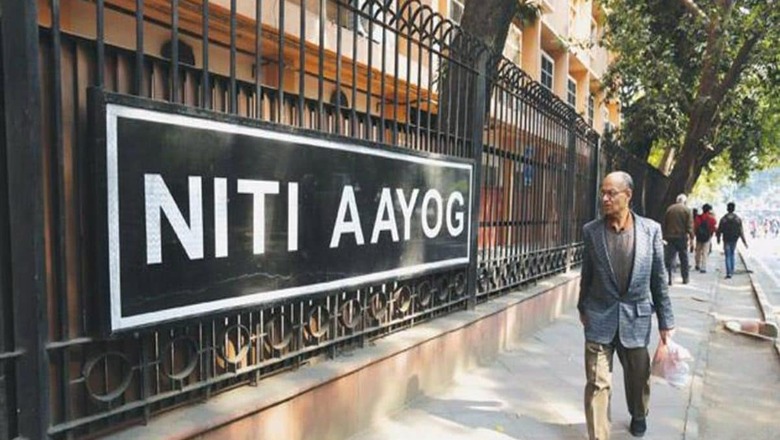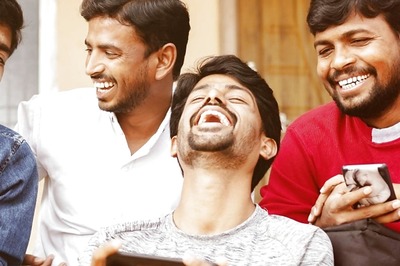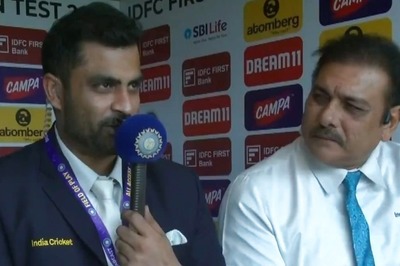
views
I walked into NITI Bhawan for the first time on September 17, 2016, the same building in which my grandfather A.N. Varma had once occupied office as Member Secretary, Planning Commission. I remember the date so vividly for it was Chairman, NITI Aayog i.e. Prime Minister Modi’s birthday.
My interview panel consisted of NITI’s senior leadership and was chaired by Dr Arvind Panagariya, the first Vice Chairman of NITI. He engaged with me extensively on India’s health sector, the challenges it faced and the reforms needed. When I came out of the interview, I googled Dr Panagariya’s views on the health sector and realised that some of what I had expressed during my interview was perhaps contradictory to the views he held on the subject. I told my mother that my selection was unlikely. However, about a week later, I got a call that I had been selected as a consultant (later designated as a public policy specialist) and joined the institution on October 10, 2016.
NITI Aayog is the Indian government’s premier think tank, providing a range of policy and programmatic inputs on various initiatives of the government. NITI’s mandate is to foster cooperative and competitive federalism through engagement with states. It has also been at the forefront of catalysing various reforms in the Indian policy space over the last few years.
Prior to joining NITI, I was a development sector professional who had worked in a philanthropic foundation and a grassroots NGO. I joined NITI in the hope of creating systemic change at scale. During my tenure at the institution, I have had the opportunity to contribute to the design of some of the government’s flagship programs in the health and nutrition space such as Ayushman Bharat and Poshan Abhiyaan.
In 2017, I co-authored India’s first Voluntary National Review on Sustainable Development Goals (SDGs) and was the only lateral entrant from the Government of India to be included in the official delegation to the United Nations high-level Political Forum.
Medical education, which was in dire need of reform for decades, has also been a key area in which NITI has made a difference. India enacted three laws in 2019-20 to establish a new regulatory architecture for education in Modern Medicine and Indian Systems of Medicine. Under the leadership of Vice Chairman, NITI Aayog, I contributed to the drafting of all three Bills, perhaps the only lateral entrant in government to do so.
When the Covid-19 pandemic struck, I became a member of the team supporting the government’s Empowered Group 1, which oversaw the Covid-19 medical management plan for the country. I tracked the progress of all states and districts on key Covid-related metrics to generate insights for resource planning. I was also responsible for driving a collaboration between a consortium of private players and the government for scaling up Swasth, a first-of-its-kind comprehensive e-hospital solution which enabled over 250,000 telemedicine consultations in just four months of its launch.
I stepped into the complex and challenging world of policymaking with the desire to make a small difference in public health, a sector I am extremely passionate about. However, at NITI, I have not only contributed to health sector reforms and initiatives but also worked on a wide range of policy issues in other sectors. I have had the privilege of working directly with three Vice Chairman, three CEOs, Member (Health), Dr Vinod Paul and several Advisors who are senior bureaucrats.
The exposure to policymaking at the national and sub-national levels as well as to the inner workings of the government has been truly unparalleled. In 2021, through a process of flexi-pool recruitment, I was appointed as a director in the institution, with the same rank, responsibilities and accountability as that of regular civil servants. A lot has been said by commentators about NITI’s effectiveness as an institution and also about the extent to which lateral entry into government has succeeded. I think on both fronts, considerable progress has been made in the last few years, with the potential for even more positive change in the future. NITI is still a fairly new institution (compared to its predecessor) and its priorities have evolved under the leadership and guidance of the prime minister who has set the collective goal of achieving Viksit Bharat by 2047.
As a lateral entrant, I can say that working in the policy space requires tremendous hard work, patience, sacrifice, flexibility as well as the ability to engage and empathise with diverse stakeholders. For those who choose this career path, and more importantly, stay the course, the dividends can be rich, most of all the satisfaction of making a long-lasting contribution to nation-building.
The author is Director, Office of Vice Chairman, NITI Aayog. Views expressed in the above piece are personal and solely that of the author. They do not necessarily reflect News18’s views.




















Comments
0 comment